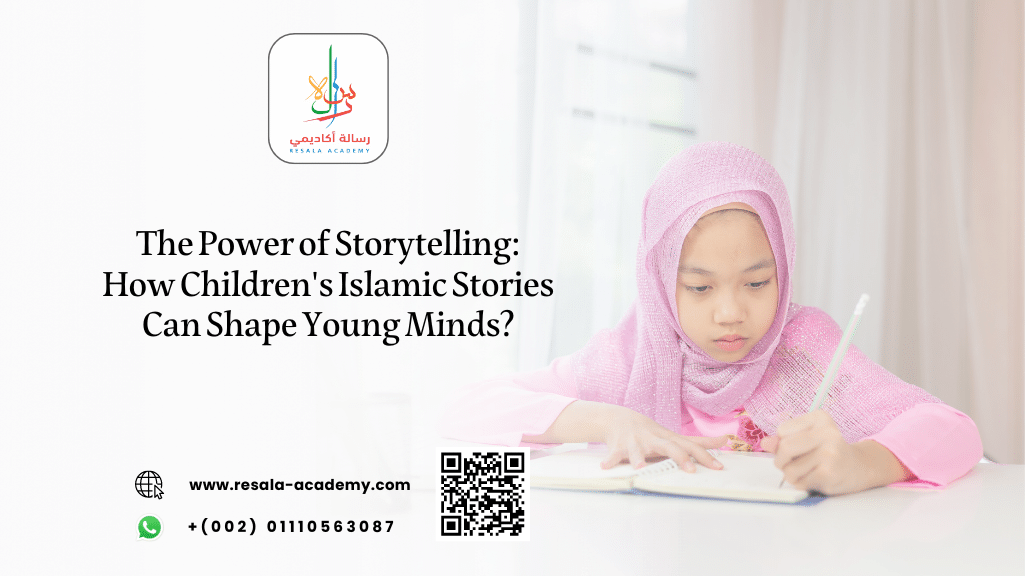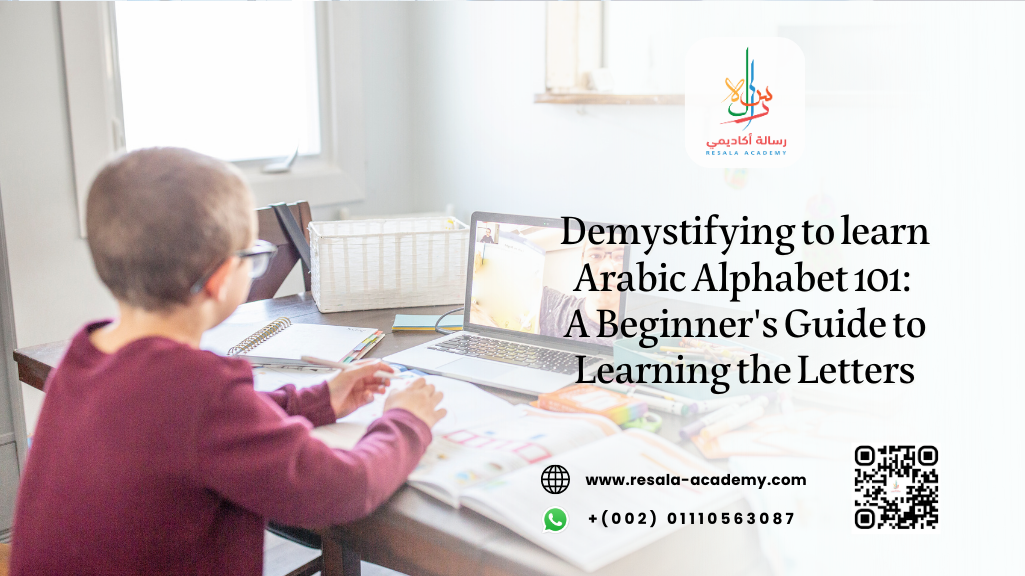Table of Contents
The Power of Storytelling: How Children's Islamic Stories Can Shape Young Minds?
Storytelling has been a powerful tool for centuries, captivating hearts and minds with its ability to convey lessons, values, and culture. In the realm of children’s Islamic stories, this art takes on an even deeper significance. By weaving tales from the rich tapestry of Islamic heritage, these stories not only entertain but also instill essential values in young minds.
The beauty of storytelling lies in its simplicity—it can turn complex ideas into relatable narratives that children can understand and embrace. Through engaging characters and vivid scenarios, children’s Islamic stories offer moral guidance while fostering a sense of belonging within their faith. As parents and educators seek effective ways to nurture spiritual growth in children, harnessing the power of storytelling emerges as a vital approach.
As we explore how these enchanting tales shape young minds today, let’s uncover the profound impact they have on character development and moral fortitude. Join us on this journey through the world of children’s Islamic stories—where every narrative is a stepping stone toward wisdom!
The Impact of Children’s Islamic Stories in Shaping Young Minds
Children’s Islamic stories hold immense power in shaping the minds of young believers. These narratives not only entertain but also impart valuable lessons about faith, morality, and community. By engaging with these tales, children learn to navigate life’s challenges through a spiritual lens.
As stated in the Quran: “And We have certainly made the Qur’an easy to remember. So is there anyone who will remember?” (Quran 54:17).
This verse emphasizes the importance of storytelling as an accessible means for children to grasp complex ideas and instill values that resonate throughout their lives.
Islamic stories serve as tools for teaching empathy, kindness, and integrity. They introduce characters faced with trials that mirror real-life situations kids may encounter. Through these relatable experiences, children can develop a strong moral compass rooted in Islamic teachings.
Moreover, these tales help create a sense of identity among young Muslims by connecting them to their cultural heritage and religious beliefs. They foster curiosity about Islam study online while nurturing respect for diversity within their communities.
Top 5 Engaging Islamic Stories for Children
Islamic stories for children are not just entertaining; they are powerful tools that teach valuable lessons and morals. Here are five engaging tales that can capture the imagination of young minds while imparting important Islamic values.
– The Story of Prophet Yusuf (Joseph): This tale teaches patience, forgiveness, and the importance of trusting Allah’s plan through the trials faced by Yusuf during his life.
– The Adventures of Luqman: Luqman’s wisdom provides timeless advice on morality, respect for parents, and making wise choices in everyday situations.
– The Tale of Bilal ibn Rabah: Known as the first muezzin, Bilal’s story emphasizes faithfulness to one’s beliefs even amidst adversity and oppression.
– Stories from the Life of Prophet Muhammad (PBUH): His kindness, honesty, and compassion serve as excellent examples for children to emulate in their daily interactions.
– The Journey of Isra and Mi’raj: This miraculous night journey inspires awe while teaching about prayer’s significance in a Muslim’s life.
Leveraging Children’s Islamic Stories to Instill Values
Children’s Islamic stories are powerful tools for instilling essential values in young minds. Through captivating narratives, these stories convey morals and principles that shape character and behavior. They teach lessons about kindness, honesty, respect, and empathy—all vital attributes for personal development.
By engaging with these tales, children learn to navigate the complexities of life while embracing their faith. For instance, stories of the Prophets often illustrate perseverance in adversity and unwavering trust in Allah’s plan. These messages resonate deeply with youngsters as they face their challenges
Parents can effectively leverage storytelling by discussing the meanings behind each tale. This dialogue encourages critical thinking and reinforces key teachings from Islam. It allows children to relate these values to everyday situations they encounter.
To foster a deeper understanding of Islamic teachings through storytelling, consider enrolling your kids at Resala Academy for Online Islamic Classes. Our program nurtures spiritual growth while making learning enjoyable!
Strategies to Enhance Children’s Understanding of Islamic Stories
Storytelling is a powerful tool. When it comes to children, Islamic stories serve as both entertainment and education. Here are some strategies to enhance their understanding:
– Use visual aids: Incorporate illustrations or animations that depict the story’s themes and characters.
– Engage in discussions: Ask open-ended questions about the story, allowing kids to express their thoughts and interpretations.
– Relate stories to real life: Connect lessons from the stories with everyday experiences they can relate to.
– Encourage role play: Have children act out scenes from the story, which helps deepen their understanding of character motivations and morals.
– Incorporate multimedia tools: Utilize videos or interactive apps that present Islamic stories in an engaging format.
By employing these methods, parents and educators can ensure that children’s engagement with Islamic narratives not only entertains but also enriches their moral development.
Empowering Children Through Islamic Stories
Islamic stories hold a unique power in shaping the hearts and minds of children. These narratives are rich with lessons that transcend time, offering moral guidance rooted in faith. They teach values such as honesty, kindness, and perseverance through relatable characters and situations.
When children engage with these stories, they find inspiration in the lives of prophets and righteous figures. This connection to their heritage fosters a sense of identity and belonging. It helps them understand their place within the broader narrative of Islam.
Moreover, storytelling stimulates the imagination while reinforcing spiritual concepts. Children visualize events from history or parables that illustrate deep life lessons; this makes learning both enjoyable and impactful.
As they absorb these teachings, kids become more likely to embody those values in their daily lives. Empowered by these tales, young ones grow into compassionate individuals who can navigate challenges with resilience grounded in Islamic principles.
Build a Strong Foundation: Enroll Your Kids in Resala Academy’s Islamic Studies Online Course!
Building a strong foundation in Islamic education is essential for every child. At Resala Academy, we understand the importance of nurturing young minds with knowledge that aligns with their faith. Our online Islamic studies course is designed to provide engaging content tailored specifically for children.
By enrolling your kids in our program, you open up a world where they can explore the rich tapestry of Islamic teachings through captivating stories and interactive lessons. This not only enhances their understanding but also instills core values such as honesty, compassion, and respect.
Our experienced instructors utilize innovative teaching methods to ensure that learning remains fun and effective. Each lesson encourages participation and fosters critical thinking skills, helping children connect deeply with their religion.
Investing in your child’s education today paves the way for them to grow into responsible individuals who embody the principles of Islam. Join us at Resala Academy and give your children an opportunity to thrive spiritually and academically.
5 FAQs
1. What are children’s Islamic stories?
Children’s Islamic stories are narratives that teach important lessons from the Quran and Hadith. They often feature beloved prophets, historical figures, and moral teachings meant to inspire young minds.
2. How can storytelling benefit my child’s development?
Storytelling promotes empathy, creativity, and critical thinking. It helps children understand complex ideas through relatable characters and scenarios while fostering their imagination.
3. Are there specific themes in Islamic lessons for kids?
Yes, many themes revolve around faith, kindness, honesty, perseverance, and respect for others. These core values help shape a child’s character as they grow.
4. Where can I find engaging Islamic stories for children?
You can explore books at local libraries or bookstores focused on Islamic literature. Online platforms also offer a variety of digital content ranging from e-books to animated tales.
5. Can storytelling be incorporated into everyday life?
Absolutely! Storytelling can happen during family gatherings or bedtime routines. Sharing these narratives regularly helps reinforce the lessons learned while creating lasting memories together.
Conclusion
Storytelling is a profound tool that can greatly influence young minds. Children’s Islamic stories play a significant role in imparting moral values, shaping character, and fostering a sense of belonging to the community. These narratives not only entertain but also educate children about their faith and its teachings.
By engaging with these stories, kids are introduced to core Islamic principles such as honesty, compassion, and perseverance. The richness of these tales allows for deep emotional connection while reinforcing foundational beliefs.
Incorporating storytelling into daily routines fosters an environment where children feel safe to explore their ideas and ask questions about their religion. Furthermore, enrolling in structured programs like those offered by Resala Academy can enhance this learning experience.
Children’s Islamic stories are more than mere bedtime tales; they serve as vital educational tools that empower the next generation with knowledge and wisdom rooted in Islam. By actively encouraging children’s engagement with these stories, we contribute significantly to building strong future leaders who embody ethical values reflective of our faith.




